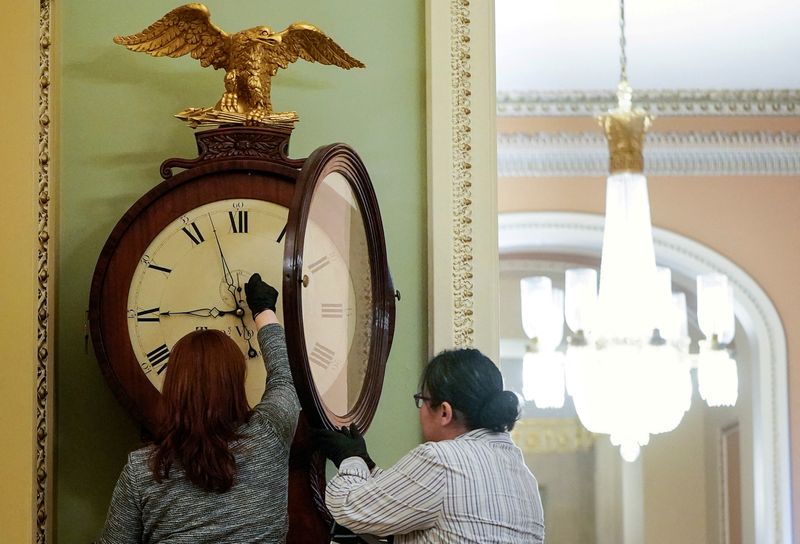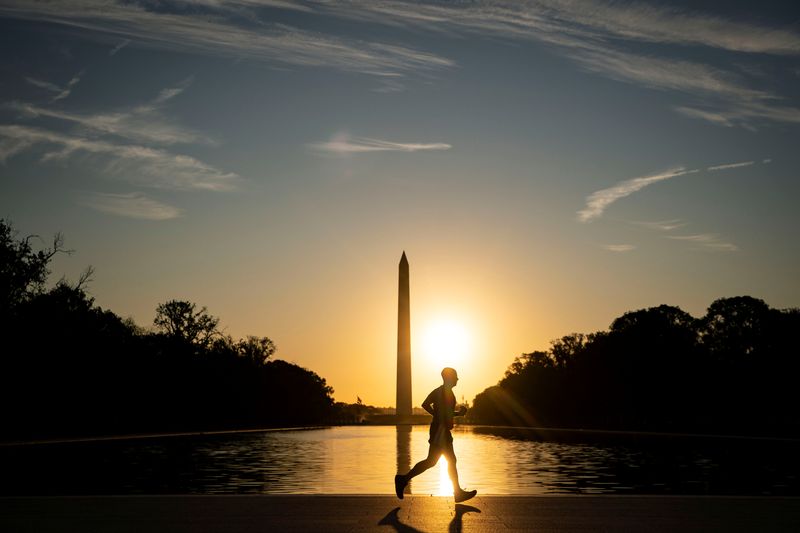By David Shepardson
WASHINGTON (Reuters) -The U.S. Senate on Tuesday passed legislation that would make daylight saving time permanent starting in 2023, ending the twice-annual changing of clocks in a move promoted by supporters advocating brighter afternoons and more economic activity.
The Senate approved the measure, called the Sunshine Protection Act, unanimously by voice vote. The House of Representatives, which has held a committee hearing on the matter, must still pass the bill before it can go to President Joe Biden to sign.
The White House has not said whether Biden supports it. A spokesman for House Speaker Nancy Pelosi declined to say if she supports the measure but said she was reviewing it closely.
Senator Marco Rubio, one of the bill's sponsors, said supporters agreed the change would not take place until November 2023 after input from airlines and broadcasters.
The change would help enable children to play outdoors later and reduce seasonal depression, according to supporters.
"I know this is not the most important issue confronting America, but it's one of those issues where there's a lot of agreement," Rubio said. "If we can get this passed, we don't have to do this stupidity anymore."
"Pardon the pun, but this is an idea whose time has come," he added.
The National Association of Convenience Stores opposes the change, telling Congress this month "we should not have kids going to school in the dark."
On Sunday, most of the United States resumed daylight saving time, moving ahead one hour. The United States will resume standard time in November.
Since 2015, about 30 states have introduced legislation to end the twice-yearly changing of clocks, with some states proposing to do it only if neighboring states do the same.
The House Energy and Commerce committee held a hearing on the issue last week, where Representative Frank Pallone, the committee's chairman, said, "The loss of that one hour of sleep seems to impact us for days afterwards. It also can cause havoc on the sleeping patterns of our kids and our pets."
Pallone backs ending the clock-switching but has not decided whether to support daylight or standard time as the permanent choice.
At the hearing, Beth Malow, director of the Vanderbilt Sleep Division, argued daylight savings time makes it harder to be alert in the morning, saying it "is like living in the wrong time zone for almost eight months out of the year."
Pallone cited a 2019 poll that found 71% of Americans prefer to no longer switch their clocks twice a year.
Supporters say the change could prevent a slight uptick in car crashes that typically occurs around the time changes and point to studies showing a small increase in the rate of heart attacks and strokes soon after the time change. They argue the measure could help businesses such as golf courses that could draw more use with more evening daylight.
"It has real repercussions on our economy and our daily lives," said Senator Ed Markey, another leading sponsor.

Daylight saving time has been in place in nearly all of the United States since the 1960s after being first tried in 1918. Year-round daylight savings time was used during World War Two and adopted again in 1973 in a bid to reduce energy use because of an oil embargo and repealed a year later.
The bill would allow Arizona and Hawaii, which do not observe daylight saving time, to remain on standard time as well as American Samoa, Guam, the Northern Mariana Islands, Puerto Rico and the U.S. Virgin Islands.
